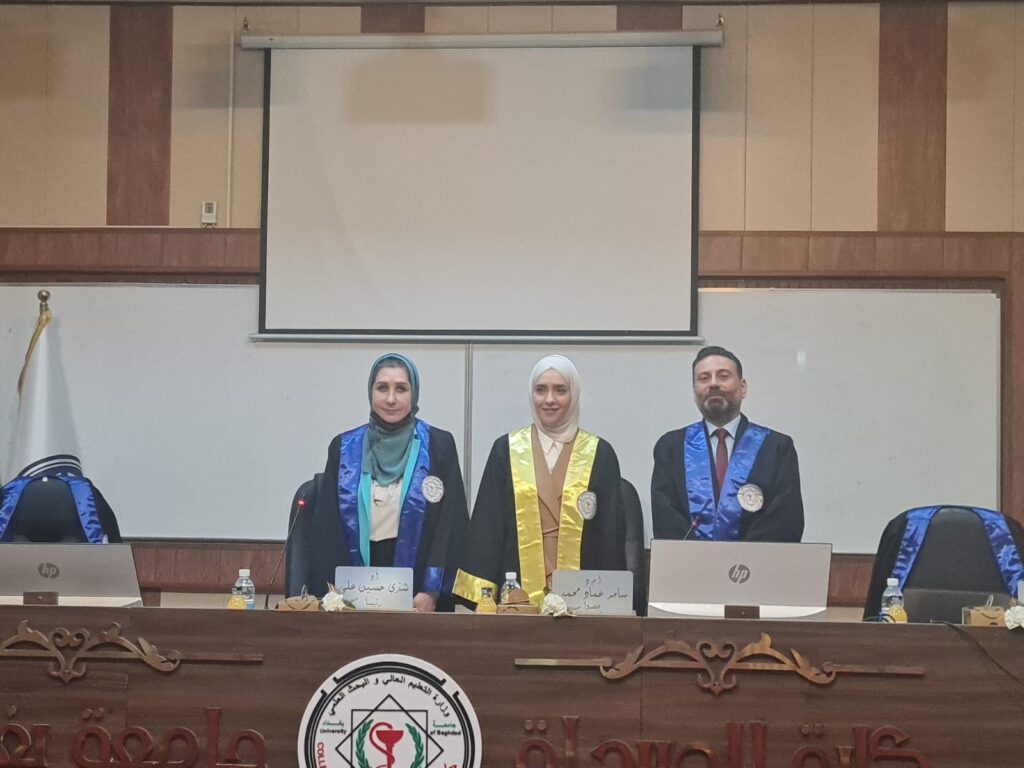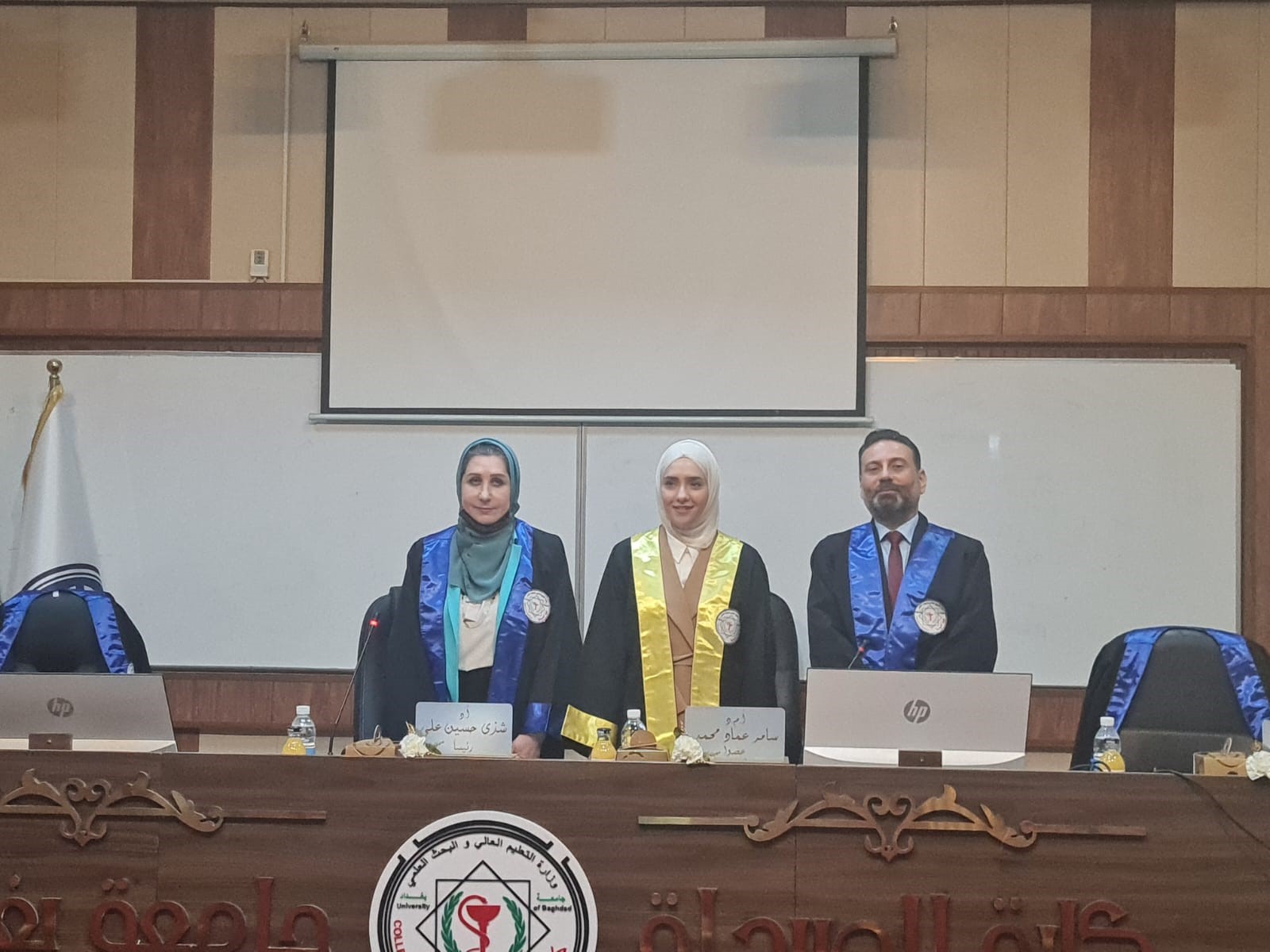The faculty of pharmacy discussed the master’s thesis entitled “Assessment of Serum Levels of Advanced Oxidation Protein Products and Dickkopf-1 and Their Association with Glycemic Control in a Sample of Type 2 Diabetic Patients with Retinopathy“by Sara Asaad Kadhim in the department of clinical pharmacy and her supervisors, Ass. Prof. Eman Saadi Saleh and Dr. Ayman Dheyaa Jaafer.This study aims to assess the serum levels of dickkopf-1 and advanced oxidation protein products in a sample of type 2 diabetic patients with and without diabetic retinopathy and compare the results with healthy controls to find whether they can be used as biomarkers for early detection of diabetic retinopathy. Furthermore, to determine the association of these biomarkers with glycemic control and to see which of the two widely used antidiabetic treatment groups had the best impact on these biomarkers. A total of 90 subjects participated in this case-control study and were chosen from Ibn AL-Haitham Hospital of Ophthalmology and the Specialized Center for Endocrinology and Diabetes. Type 2 diabetic patients were assigned to the diabetic retinopathy group [which is further divided into the proliferative diabetic retinopathy group and the non-proliferative diabetic retinopathy group] and a group without diabetic retinopathy. Each group used either Dipeptidyl peptidase-4 inhibitors or Sulfonylureas with Metformin as an antidiabetic treatment given by their endocrinologist. Advanced oxidation protein products showed significantly higher levels in the patients’ group compared to the control group (p<0.05). Furthermore, the proliferative diabetic retinopathy group had significantly higher levels of advanced oxidation protein products than the non-proliferative diabetic retinopathy group. The lowest levels of advanced oxidation protein products were recorded in diabetic patients without retinopathy who took dipeptidyl peptidase-4 inhibitors + metformin. The results proved that type 2 diabetic patients had significantly lower serum dickkopf-1 levels than the control group (p<0.05). Furthermore, the proliferative diabetic retinopathy group showed significantly lower serum levels of Dickkopf-1 compared to the non-proliferative diabetic retinopathy group. Diabetic patients without retinopathy who received dipeptidyl peptidase-4 inhibitors plus metformin had higher serum dickkopf-1 levels than those who received sulfonylureas.



